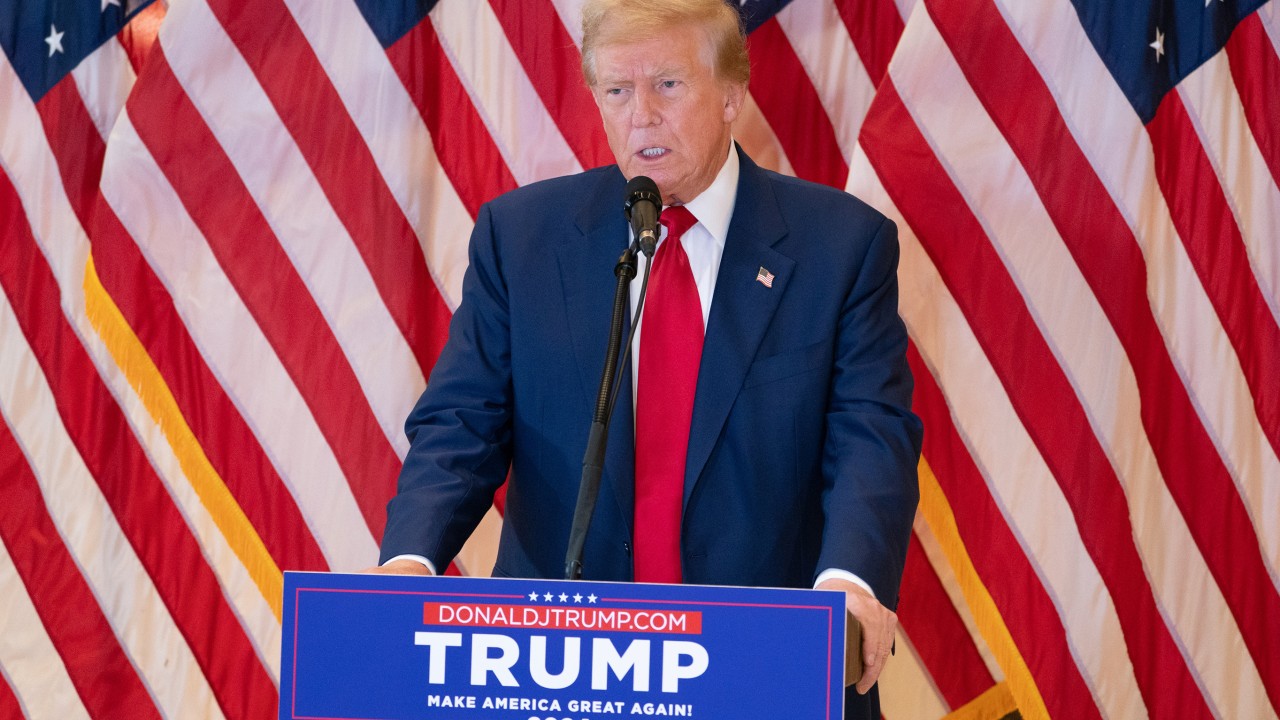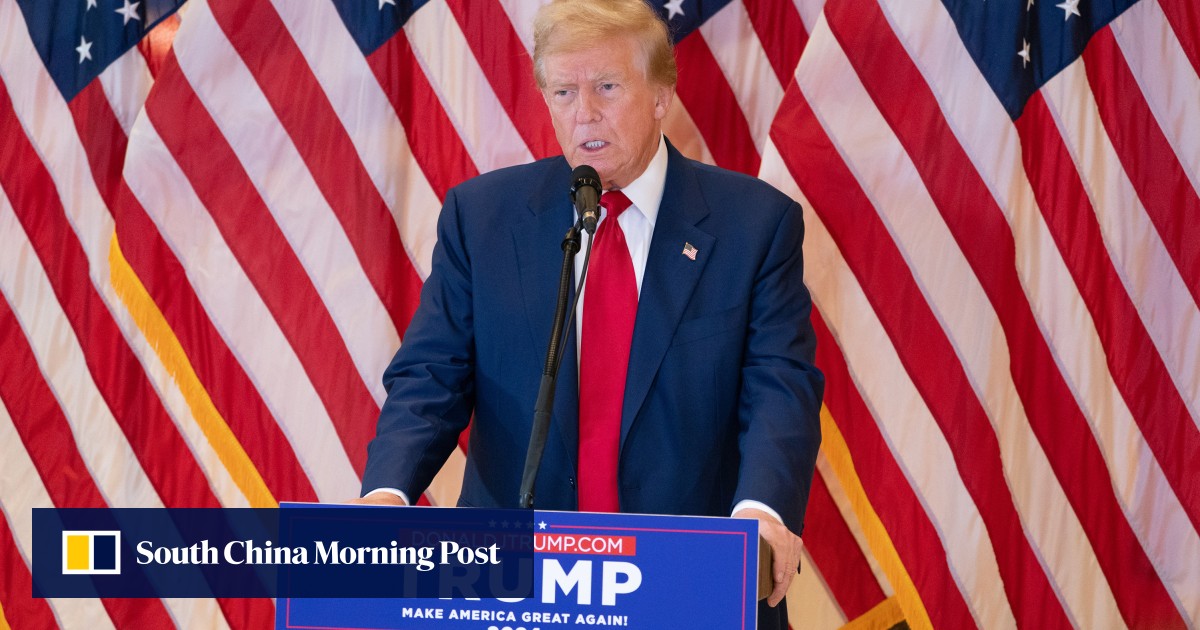
Uncertainty surrounding a possible win by Donald Trump in the US presidential election in November, as well as overall geopolitical tensions, could add volatility to the foreign exchange market and further pressure China’s yuan in the coming months, analysts said at a seminar organised by Renmin University of China on Wednesday.
“One important uncertainty in the second half of this year is the US presidential election,” said Xu Qiyuan, a senior research fellow at the Chinese Academy of Social Sciences, when commenting on the recent strength of the US dollar.
“If Trump wins, there may be expectations from markets that there would be a boost to the US economy,” Xu said, adding that it could also elevate the risk for US inflation, delaying interest rate cuts by the US Federal Reserve, which would maintain the large interest rate differential between China and the US.
“While I don’t think [a large China-US interest rate differential] should hinder China’s monetary policy, in reality, it is a bit of a restriction. This is why I think our fiscal policy really needs to be more proactive.”
A Renmin University report on Wednesday said that the yuan had remained relatively stable, trading between 7.1 and 7.25 against the US dollar in the first half of the year.
But the report also highlighted the large China-US bond yield gap and the risk that geopolitical tensions and trade conflicts could trigger volatility in the foreign exchange market in the second half of the year.
China’s yuan, along with other currencies in Asia, have seen renewed depreciation pressure in recent weeks, largely because of the strength of the US dollar.
Last month, the People’s Bank of China on multiple occasions allowed the daily yuan central parity rate to fall gradually at a marginal pace, raising questions that the central bank would weaken the currency.
The PBOC limits the daily fluctuation range of the yuan exchange rate in the onshore spot market to 2 per cent above or below the parity rate.
China has kept a tight grip on cross-border fund flows, and is concerned that a weak yuan could also trigger fund outflows.
And although there have been expectations that the PBOC could ease interest rates to boost weak credit demand, a rate cut may also add depreciation pressure for the yuan.
Only if you tolerate foreign exchange volatility, you can have monetary independence
Speakers at Wednesday’s seminar were split on whether the PBOC should intervene to steady the yuan when it comes to countering the strength of the US dollar.
Wang Yongli, a former vice-president with the Bank of China, argued that stability of the yuan’s exchange rate remained important despite volatility in the foreign exchange market.
He suggested setting a “reasonable” level of the exchange rate, allowing the fluctuation range to be around 5 per cent.
‘Within this range, if there is great volatility, one should not panic,” Wang said. “If the volatility goes beyond the range, it would need urgent action to stabilise [the volatility].”
However, Guan Tao, chief economist at the Bank of China International and a former foreign exchange official, said overemphasis of stability of the yuan’s exchange rate could limit room for China’s monetary policy.
“Only if you tolerate foreign exchange volatility, can you have monetary independence,” Guan said.
“Between exchange rate and monetary policy, it isn’t a painless choice. There are always going to be pros and cons.”

